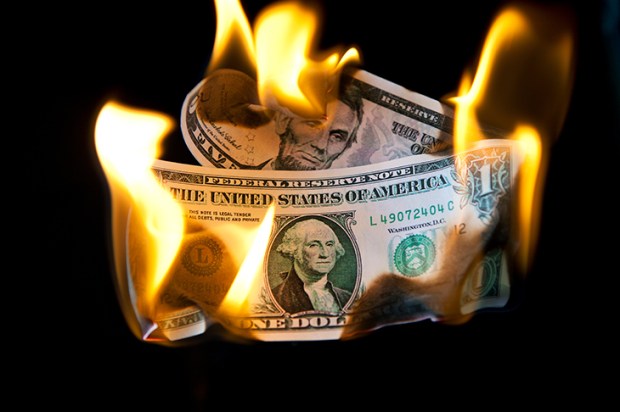If the 2025 Australian federal election proved anything, it’s that the era of major party dominance is approaching its end. It is true that Labor secured more seats than in the previous election, but the combined first preference flow to the major parties continues its downward trajectory.
The voters have spoken. But not with a roar, but rather with an exhausted sigh. Their preference tickets read more like protest banners than ballots. Labor held on, but the Coalition didn’t just lose. It continued its meandering and aimless shuffle into political irrelevance, muttering about more future funds and tax-free lunches.
This wasn’t merely a routine defeat. It was a repudiation. A verdict on a coalition of two parties that continue to struggle to read the room. Worse, they seem uninterested in trying. Trapped in a focus group feedback loop, the Coalition mistook stale talking points and applause from friendly audiences as strategy and policy.
In a country now saturated with credentialled elites and starved of common sense, the Coalition had an open goal: to speak for the forgotten middle. For the people who don’t spend their lives tweeting academic jargon or writing Diversity Action Plans or quoting economic models they neither understand let alone look at.
Rather than confront the elephant in the room, that a sprawling public sector and activist academia are breeding a top-heavy, discontented class with more ambition than utility, the Coalition defaulted to shadowing Labor on most cultural and economic issues.
Squint your eyes and tilt your head and they looked the same. Labor promised to spend $8.5 billion on Medicare. The Coalition promised $9 billion. Both agreed to confiscate the Port of Darwin, and neither proposed to tackle the out-of-control NDIS, nor productivity-asphyxiating industrial relations, environmental, and business regulations.
When the Coalition did speak, it sounded like a less confident version of the government it was meant to oppose.
They completely discarded their fiscal rectitude mantle, particularly during Covid, deciding instead to pay people billions not to work. Was the aim to beat Labor to a trillion-dollar debt? No wonder voters shrugged and looked elsewhere.
When voters don’t think they are paying, they will always pick the name brand over the house brand. And after four elections, the Coalition still hasn’t grasped this. They keep pitching themselves as the home-brand Labor knock-off. The Coalition seems so enamoured with Labor’s message that they struggle to articulate anything but a milder version of the same.
The truth is brutal. The Coalition has a personnel problem. And the Coalition’s personnel have created a policy problem, or more specifically, a policy vacuum. No amount of slick presentation can fix what’s broken. You can’t polish a confused and incomprehensible message.
This isn’t a shortage of political talent. It’s a leadership failure. The party is packed not with elites, but with surplus elites. Careerists more interested in the spoils of power than in exercising power to advance a coherent vision. They crowd out the capable, the principled and the politically savvy. The ones who could carry the banner of Australian liberalism.
Is the Coalition an unwitting disciple of economist Harold Hotelling? Hotelling famously likened political parties to two ice cream vendors at the beach. Seeking to capture the most customers (or votes), both will gravitate toward the middle, offering nearly identical products. Voters loyal to each stand are left with little choice. But as Labor has drifted toward the more progressive, socially radical end of the spectrum in chasing the Greens, the Liberals have followed suit, mimicking the shift closely. That leaves traditional Liberal supporters with few options, except, perhaps, One Nation.
The Liberal party, once the party of aspiration, enterprise and responsibility, has become intellectually colonised by the National party, agrarian socialists easily purchased by cabinet position and regional grant baubles. For a fistful of silver, the Nationals sold out their constituents to agree to net zero.
Together, the Coalition’s credibility to challenge Labor’s expansion of welfare and bureaucracy is long gone, torched by its own record. John Howard’s turbo-charging of middle-class welfare and the unchecked bureaucratic expansion under Turnbull and Morrison handed Labor the ideological terrain without a fight.
At this election, the Coalition could have stood for wholesale rethink of the role of government in Australia. For leaner government, freer markets and freer people. Instead, they offered voters Labor-lite, with worse slogans and less conviction.
Meanwhile, Australia’s political divide is no longer left versus right. It’s insiders versus outsiders. The ever-growing machinery of government now exists not to serve the people, but to pick winners – individuals, businesses, even entire communities – who know how to game the system. The more lucrative the rewards for seeking political rents, the more the system mutates to reward rent-seekers. And this is not sustainable.
Voters seemed to relish the handouts paid for by debt and taxes to offset the huge fall in living standards. They also seemed to welcome the tissue of lies spun by Labor about Coalition policy announcements. The Coalition was incapable of contradicting these lies.
The trajectory is clear: rising debt, decaying institutions and a population increasingly alienated from those who govern them.
Australia is on the cusp of $1 trillion in debt. The AAA credit rating, once a symbol of sound fiscal management, is hanging by a thread. The government will, eventually, run out of other people’s money. At that point, the cost of avoiding changing direction becomes greater than the cost of undertaking it.
Chances are that in three years, things will be worse than they are today, which are already worse than they were three years ago. Change is coming. The only question is how painful it will be.
The 2025 election was not a blip. It was the sound of the bell tolling in the distance. A warning, not just for the Coalition, but for the political class more broadly. If the Coalition doesn’t hear it, and respond with genuine ideas, not recycled slogans, it won’t just keep losing elections. It will lose its reason to exist. Because what’s at stake now is the country’s future.
Got something to add? Join the discussion and comment below.
Dimitri Burshtein is a principal at Eminence Advisory. Peter Swan AO is professor of finance at the UNSW-Sydney Business School.
You might disagree with half of it, but you’ll enjoy reading all of it. Try your first month for free, then just $2 a week for the remainder of your first year.













